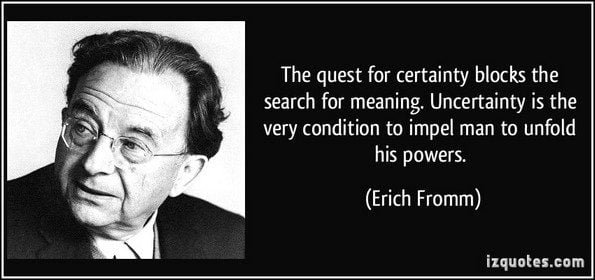
Last week, aspiring model and college student Fredzania Thompson was tragically killed when a train hit her while she was standing too close to the tracks. CBS News reports:
The mother of a 19-year-old Texas woman says her daughter was killed when she was struck by a train while having photos taken of her on the tracks in a bid to launch a modeling career.
Hakamie Stevenson told The Eagle newspaper that her daughter, Fredzania Thompson, attended Blinn College in Bryan, Texas, but wanted to put her education on hold to begin modeling.
Authorities say Thompson was standing between two sets of tracks on March 10 in Navasota when a BNSF Railway train approached.
She moved out of the way of the train but was apparently unaware that a Union Pacific train was coming in the opposite direction on the other tracks and was struck.
In this post, my objective is not to focus on the nature of Thompson’s death as much as the reason given for her demise. Sambreia Glover had this to say about her 20-year-old cousin’s death:
Everyone knew the real Zanie … very free-spirited, just goofy. Everyone loved her. She never met a stranger. She was just very friendly and sweet. it’s tough, but God makes no mistakes. It was just her time, but she will be truly missed.
According to Thompson’s cousin — who is likely an Evangelical Christian — God — who supposedly makes no mistakes — killed Thompson because it was just her time to die. She’ll be missed, Glover said, but hey the Giver and Taker of Life knows what he is doing.
What reason could the Christian God possibly have for killing a bright, energetic 20-year-old girl? Does God assign death dates to every human life at birth? If so, and if, as pro-lifers say, life begins at fertilization, that means God assigns a death date to every aborted fetus. This also means that children who died of cancer did so because it was their time to die. According to many Evangelical pastors, everyone has a divine appointment with death. The Bible seems to be on their side. Hebrews 9:27 says:
And as it is appointed unto men once to die, but after this the judgment
This verse can be interpreted several ways. One way is to say that the appointment in question is the death of all humans, not anyone in particular. After everyone is dead and the events of the book of Revelation are fulfilled, everyone will be resurrected so they can stand before God and be judged. Another way this passage is interpreted — the one most commonly used by Evangelical preachers — is that everyone has a set-in-stone death-day. In Thompson’s case, March 10, 2017, was her day to die.
Let’s assume, for a moment, that the notion of everyone having a set-by-God death-date is true. What does this say about God? Think of all the various ways humans die. Think of all the suffering, pain, and agony people go through before drawing their last breaths. Think of all the bizarre ways people die — wrong place, wrong time, BAM! you’re dead! What kind of monster is God with his macabre, psychopathic, torturing-kittens ways of strangling the life out of those whose creation was supposedly his crowning achievement? If death is a divinely ordered necessity, why not let people on their death-day die in their sleep? Surely that would be good not only for the dead people, but also their families. Instead, God — the First Cause of everything, the Beginning and the End, the First and the Last — throws people off cliffs, murders them in dark alleys, blows them up in crowded bazaars, drowns them in swimming pools, fries them with lightning, and, as in Thompson’s case, hits them with trains.
Some Evangelicals will argue that God, as creator, can do whatever he wants to do. The Apostle Paul makes this very argument in Romans 9. God is the creator, Paul said, and we are the created. How dare we challenge God’s right to do whatever he wants.
Another argument made for God’s chosen methods of human-killing is that the more graphic, violent, and awful the death, the more likely it is that people will pay attention to it. Who wants to watch the Hallmark Channel when you can watch HBO, right? Since heaven or hell awaits everyone and this is determined by whether people are Christian or not, news-worthy deaths are warning signs from God. On Sundays, countless Evangelical pastors use this very approach in their sermons, giving graphic illustrations of people who died horrible, untimely (from a human perspective) deaths. The goal is to scare people into getting saved. I used countless such illustrations, hoping that congregants who consider their frail mortality, soon death, and eternal destiny. Such illustrations in the hands of skilled emotion manipulators usually lead people — with tears streaming down their faces — to put their faith and trust in Jesus Christ.
Thompson’s cousin also said that “God makes no mistakes.” I wonder if Christians, in light of the Bible, consider whether statements such as this are true. According to the Good Book, God created Adam and Eve. How did that work out? If God is the First Cause, isn’t he responsible for the fall of Adam and Eve into sin? If God knows E-V-E-R-Y-T-H-I-N-G, he must have known Adam and Eve were going to eat of Tree of Knowledge of Good and Evil, and, according to orthodox Christianity, plunge the entire human race into sin. Think of all the evil, violence, and suffering on display in this world of ours. Evangelicals trace all of these things back to our sinful nature. Surely, it is fair to say that God screwed up big time when creating Adam and Eve as he did. In other words, God made a colossal mistake.
Several thousand years later, humans had procreated themselves into a six-million or so species. Also roaming the earth were fallen angels. These angels were having sex with human women, resulting in the birth of angel-human hybrid children. Bizarre TV show from the SyFy channel? Nope, straight from the Bible, Genesis, chapter six:
And it came to pass, when men began to multiply on the face of the earth, and daughters were born unto them, That the sons of God saw the daughters of men that they were fair; and they took them wives of all which they chose. And the Lord said, My spirit shall not always strive with man, for that he also is flesh: yet his days shall be an hundred and twenty years.There were giants in the earth in those days; and also after that, when the sons of God came in unto the daughters of men, and they bare children to them, the same became mighty men which were of old, men of renown.And God saw that the wickedness of man was great in the earth, and that every imagination of the thoughts of his heart was only evil continually. And it repented the Lord that he had made man on the earth, and it grieved him at his heart. And the Lord said, I will destroy man whom I have created from the face of the earth; both man, and beast, and the creeping thing, and the fowls of the air; for it repenteth me that I have made them.
Note carefully what the Bible says: And it repented the Lord that he had made man on the earth, and it grieved him at his heart…. And the Lord said, I will destroy man whom I have created from the face of the earth. This sure sounds like it is saying that God is admitting that he made a mistake in creating humans, and that the only way to fix his mistake was to kill everyone (save Noah and his family, eight in number) and start over.
The most humorous part of this story is that after God flushed the earth and started over, the first thing that Noah and his sons did was commit some sort of sexual sin (Genesis 9:19-24). Poor God, he can’t seem to get it right. He should have killed Noah’s family too.
Evangelicals are fond of saying, PRAYER CHANGES THINGS! Implied in this statement is that through prayer God can be moved to act on their behalf. Need something from God? PRAY! Need a job, home, money, car, a wife? PRAY! Need deliverance from alcohol, heroin, or porn? PRAY! Pray long and hard enough, the thinking goes, and God will come through for you, giving you that which you ask for. God, then, is some sort of divine vending machine. Keep putting quarters in the slot and pulling the handle, and God will sooner or later drop a package of Peanut M&Ms from Heaven.
If prayer can indeed change things, wouldn’t this mean that God changing his mind about a matter is him admitting that his first plan of action/inaction was wrong? If God is perfect, the same yesterday, today, and forever, doesn’t the very act of answering prayers say that God is NOT any these things?
If God is all that Evangelicals say he is, shouldn’t we expect God to get it right each and every time? What does it say about a supposedly all-knowing, all-powerful God that he is neither? What it should say to anyone who is paying attention is that this God is a figment of human imagination. People desperately want to believe that there is some sort of higher power controlling the universe. They also want to believe that their life matters to God and has meaning and purpose. Life isn’t worth living, Christians say, if these things are not true.
Of course, the mere existence of atheists, agnostics, pagans, humanists, and countless other non-Christians, suggests otherwise. Earthly, godless life can be and is filled with wonder, meaning, and purpose. Evangelicals may not be able to wrap their minds around this fact, but that doesn’t mean it is not true. Millions and millions of people live in the present, acknowledging that death lurks around the next corner. Today, tomorrow, or 50 years from now, death — the great equalizer — will claim us all. The difference, of course, is that unbelievers know that to some degree they can control when and even how they die. Yes, genetics, environment, and luck play a big part, but we are NOT passive players in the drama called life.
Every day, all of us make decisions based on the evidence at hand and probabilities. Living on Earth is both wonderful and dangerous. Having lived for almost 60 years, I can say that I am lucky to be alive. Forty-five years ago, 15-year-old Bruce was walking home from the YMCA one evening with his friends when a stopped train blocked his path home. After 10 or so minutes, the daredevil boy with flaming orange hair decided he had enough and started to climb underneath the train. My friends laughed and cheered me on, but none of them was willing to following me across the tracks to the other side. Perhaps their reason for not doing so was the train lurching forward as I made it halfway to the other side. My friends’ laughs and cheers turned into screams, fearing that the train was going to crush me or cut off my legs. Fortunately, I safely made it to the other side. (And astoundingly, I waited until the tracks were clear so my friends could praise me for my bravado, forgetting that my reason for doing this was to save time.)
The story of Fredzania Thompson’s tragic death and my story of keeping my legs for another day have much in common. Both of us foolishly thought that it was okay to play on train tracks. Both of us, filled with youthful life, had no thoughts of death. Thompson just wanted a picture, and I just wanted to get home. Thompson’s roll of the dice resulted in her death, mine became a story to tell forty-five years later. The difference between the two stories? Luck. I could just as easily have been killed or turned into a legless example of youthful stupidly.
At the time, I thanked God for saving me from the train, but now I know that I was one lucky boy. Had my life ended that night, none of what I have experienced since them would have happened. Surviving many such experiences has taught me the importance of carefully considering possible outcomes. Not that I still don’t make stupid decisions. I do, and perhaps one day I will die, the result of one stupid decision too many. (Please see Death by Duck: The Photograph that Almost Killed Me.)
I certainly empathize with Thompson’s family. Her death came way too soon, long before it should have. She should have had a full life ahead of her, including a modeling career and perhaps a husband and family. So much potential, snuffed out in an instant because of a thoughtless choice to have her photograph taken on busy railroad tracks. God is not to blame (or credit), because he doesn’t exist. The blame squarely rests on Thompson, and to some degree, the photographer — who should have assessed the risk involved in taking the photograph. All of us know that train tracks are dangerous, yet every year hundreds of Americans are killed by trains. We KNOW, yet we allow the thrill of the moment or lateness to override our thinking, resulting in death and serious injury. One thing is for certain, future Thompsons will be warned about the danger that railroad tracks present to them. This is how we survive as a species. Not by attributing everything to God, but by learning from our ignorant, foolish, ill-advised decisions. Much of life and death rests with us. If we want to live long, fulfilling lives, we must learn to assess danger, weigh probabilities, and act accordingly. We still might end up dead, but it won’t be because we threw caution to the wind and put ourselves in harm’s way.
Share This Post On Social Media:



